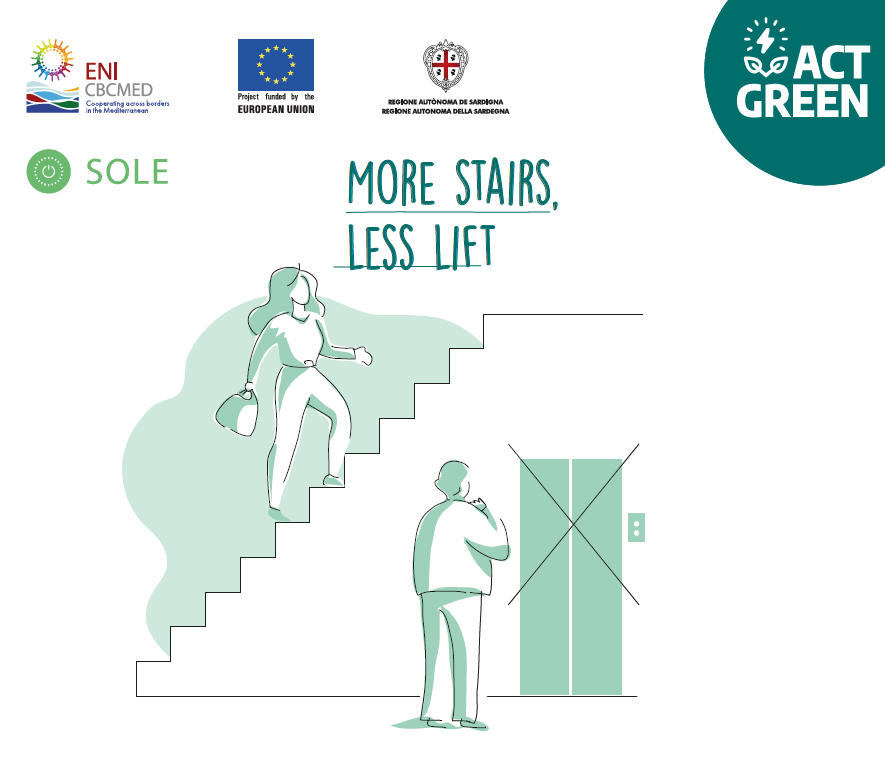SOLE launches its campaign to tackle energy bills skyrocketing all over the Mediterranean

Mediterranean countries are facing a record-breaking increase in energy prices due to several market, geographic and political factors and energy consumption will only increase as temperatures fall during the winter season. According to Tim Gore, head of the Low Carbon and Circular Economy programme at the Institute for European Environmental Policy (IEEP): "This is about a surge in demand for energy as we come out of the restrictions imposed by the pandemic, combined with a reduced supply of gas on the global market". In Europe the rising of gas prices has led to a consequent increase of the general price of electricity by over 230% in the last year. In fact, the dependency on fossil fuels means that the final price of electricity is often set by the price of coal or natural gas.
The shift to a more renewables-based energy system could help to reduce the cost of bills but this process isn’t fast and the use of renewable energies isn’t widespread enough.
SOLE project propose as an initial solution to focus on increasing the energy efficiency of buildings thanks to the cooperation and commitment of the staff and users.
Taking inspiration from the Big Switch Off Campaign (good practice from Durham County Council - UK) and the best practice represented by the Interreg Europe REBUS Project, the SOLE partners are preparing to implement the new awareness campaign “Act Green” with the aim to reduce building energy consumption by encouraging behavioural change in building’s staff and users.
SOLE Italian partner, Agenzia Regionale Recupero Risorse (ARRR), which is in charge of this action, developed a Capacity Building pack with tools and suggestions useful to make the campaign a success. The campaign will be carried out within the buildings involved in the project but it could be easily extended to a wider range of buildings. Here then some tips and steps to follow!
The campaign should last at least 2 weeks, but the preparation requires much more time. Moreover, it’s important to choose the right period to start the campaign in the specific building (for example avoiding holidays, elections, busy periods or when there’s low morale and pay attention to implement it in days having similar weather/temperature).
The steps to be taken by partners could be summarized as follows:
- Identify the building or several buildings where to implement the Act Green Campaign (that is Pilot Building selected for the energy rehabilitation action but, if possible, also other buildings the partners manage) and study the situation of the building, regarding energy consumption and waste;
- Identify a team (volunteers and motivated people) who take care of the building, encourage energy-saving behaviour, stimulate and animate colleagues. In this “Energy Team” each member has a specific task and responsibility according to their will and skills;
- Find the best measures to promote the behaviour change related to the irrational and inefficient use of equipment, devices, elements and structures of the building (e.g. training and information campaigns with workshops, seminars, lectures, economic and financial incentives, brochures, posters, newsletters…);
- Decide how to better use the campaign materials provided by ARRR (posters, brochures and video to promote the campaign with a light hearted design);
- Analyse the barriers to behaviour change and to design interventions to target them and find the best solutions;
- Monitor and measure the results obtained, clarifying the tools/progress indicators and the method (such as the analysis of Energy Bills, the reading of Energy meter daily for 2 weeks - to compare before and after);
- Submit a questionnaire before and after the campaign to evaluate the real impact of the implemented actions;
- Disseminate and spread the results within and without the building.
Last but not least, in order to guarantee the success of the campaign and obtain real and permanent changes in thoughts and actions, it’s necessary to maintain a high level of interest and attention on the matter during a medium/long term (beyond the campaign period). Administrators and public opinion must be properly informed of the opportunities that technological and political choices can offer and of the results that can be obtained with an appropriate behavior aimed at reducing energy consumption and environmental impact.









